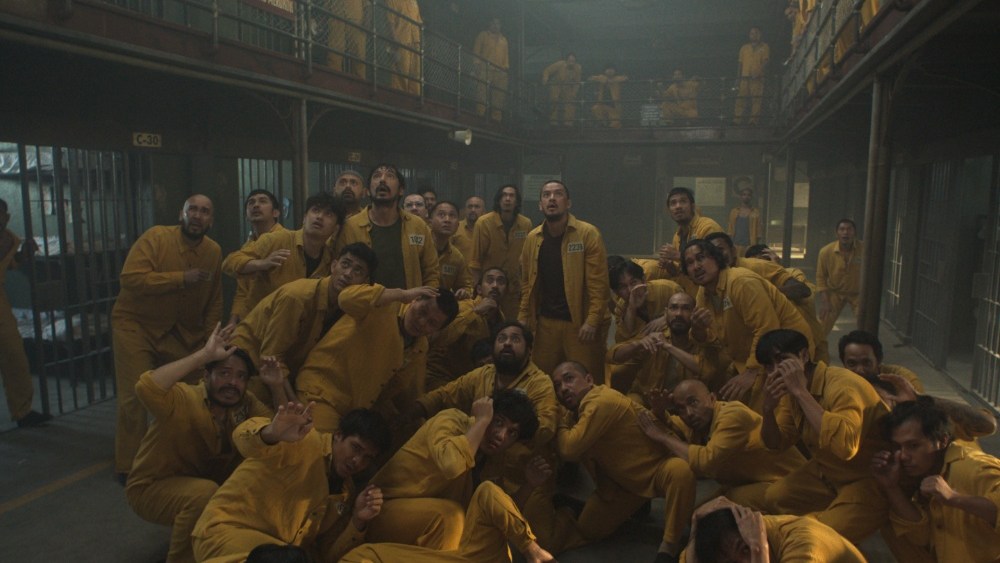Balungson E&A, the studio that produced and distributed “Parasite,” reaffirmed that domestic producers are turning to global co-productions due to the sharp increase in production costs and slump in film revenues in South Korea.
Yoonhee Choi, CEO of Barunson E&A, addressed the challenges facing the industry at a seminar on international co-productions at TIFFCOM, the market division of the Tokyo International Film Festival.
“The film industry is struggling in South Korea, and at the same time, production costs have increased significantly,” Choi said. “Average production costs are rising across the board as labor costs and general prices rise. These investments are becoming more difficult as profits from films have declined.”
The studio has expanded into international markets, producing a series of completed films from Taiwan (“Miss Shampoo”), Vietnam (“Don’t Cry Butterfly”) and Indonesia (“Ranga & Cinta”).
Barunson E&A is particularly interested in the Indonesian market.
“The country we are currently working with is Indonesia because it is currently the fastest growing country in the world and there is still a lot of room for further growth,” Choi said.
“Many talented new directors are emerging in Indonesia. Previously, successful film genres were limited to horror, religious dramas, etc., but these days there is a demand for diverse films, and there are talented new directors who can bring such projects,” she added.
To strengthen its efforts, the company recently signed acclaimed Indonesian director Joko Anwar to a two-year slate deal. Barunson E&A is in charge of overseas sales of the director’s new film “Ghost in the Cell.”
Choi, along with fellow panelist Japanese producer Shinya Kawai (The Ring, Yiyi), also provided insight into the sophisticated campaign strategy that helped make Parasite the first non-English film to win Best Picture.
“From the beginning, we chose an overseas distributor that could participate in our Oscar campaign, a company that had the experience, passion, and will to somehow elevate this film,” Choi said. “After winning the Palme d’Or at the Cannes Film Festival, we immediately launched an Oscar campaign in collaboration with US distributor Neon.
“Academy campaigns are almost like election campaigns. We always had to create the legitimacy and rationale for the Academy to vote for this film. There was a lot of enthusiasm for diverse films in the United States at the time, and I think director Bong Joon-ho ran a very persuasive campaign targeting Academy members, which contributed to its success.”
Mr. Kawai issued a harsh rebuttal to director Edward Yang’s “Yi Yi: A One and a Two”, which won the Best Director award at the Cannes Film Festival, reflecting on the lack of experience that led to the failure of the 2000 Academy Awards campaign.
Although the film received high praise from critics, director Kawai realized too late that the film was not eligible for an Academy Award.
“After winning the Best Foreign Film Award from the Los Angeles Film Critics Association, I looked into the Academy Awards requirements and found a stipulation that the film must be screened in its home country for at least two weeks by the end of December,” Kawai said. “By the time I realized it, it was already too late, but I decided to give it a try anyway. I hurriedly screened a movie directed by Edward Yang once in Shibuya in December.”
Despite the efforts, the film was not nominated for an Academy Award for other technical reasons.
“We considered it a co-production, but since the producers were Japanese and most of the financing came from Japan, we thought it would be defined as a Japanese film,” Kawai continued. “However, in the end, it was judged to be a Taiwanese film because the director was Taiwanese and most of the filming locations were in Taiwan. Since it had not been screened in Taiwan, it was judged ineligible.”
Mr. Kawai also spoke carefully about Japan’s unique Production Committee (Production Committee) financing system, in which committees of companies come together to invest and share risks.
Mr. Kawai was the lead producer of the 2004 film “Rikidozan,” which was planned to be co-produced with Japanese and Korean investors splitting the cost of 700 million yen ($4.5 million).
“While we were working on the script, one of the five Japanese production committees said that the story was bad.The largest investor said it was absolutely impossible and withdrew.When one member of the production committee withdrew, everyone else withdrew.At that time, I felt sorry for the Korean side, but in the end the Korean CJ ended up paying half of the Japanese side’s funding,” Kawai said.
He lamented that the production committee system does not allow quick decision-making.
“You need a producer with the ability to respond instantly and make decisions. On the other hand, the production committee method requires unanimity to move forward. There are benefits such as being able to hedge risks and using your own media company for promotions, but when working with overseas partners there are always issues such as speed.”

